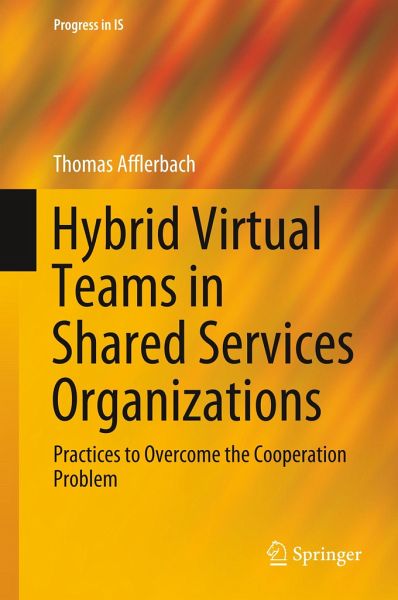
Hybrid Virtual Teams in Shared Services Organizations
Practices to Overcome the Cooperation Problem
Versandkostenfrei!
Versandfertig in 6-10 Tagen
76,99 €
inkl. MwSt.
Weitere Ausgaben:

PAYBACK Punkte
38 °P sammeln!
This book focuses on virtual teams, which are fraught with cooperation problems. It offers novel insights into how team members experience and overcome these problems by empirically studying hybrid virtual teams in Shared Services Organizations. It firstly enhances the reader's understanding of contextual challenges relating to cooperation and shows how members of such teams experience faultlines through distance, disconnection through reliance on communication technology and discontinuity through temporality of team composition. Secondly, it explores how they use 22 practices to overcome the ...
This book focuses on virtual teams, which are fraught with cooperation problems. It offers novel insights into how team members experience and overcome these problems by empirically studying hybrid virtual teams in Shared Services Organizations. It firstly enhances the reader's understanding of contextual challenges relating to cooperation and shows how members of such teams experience faultlines through distance, disconnection through reliance on communication technology and discontinuity through temporality of team composition. Secondly, it explores how they use 22 practices to overcome the cooperation problem, which can be categorized as strategies of identity constructing, trusting and virtual peer monitoring. Lastly, the study analyzes the role of technology, demonstrating that state-of-the-art media can facilitate, but not ensure the use of these strategies and practices. As such, the book has implications for both researchers and practitioners.














